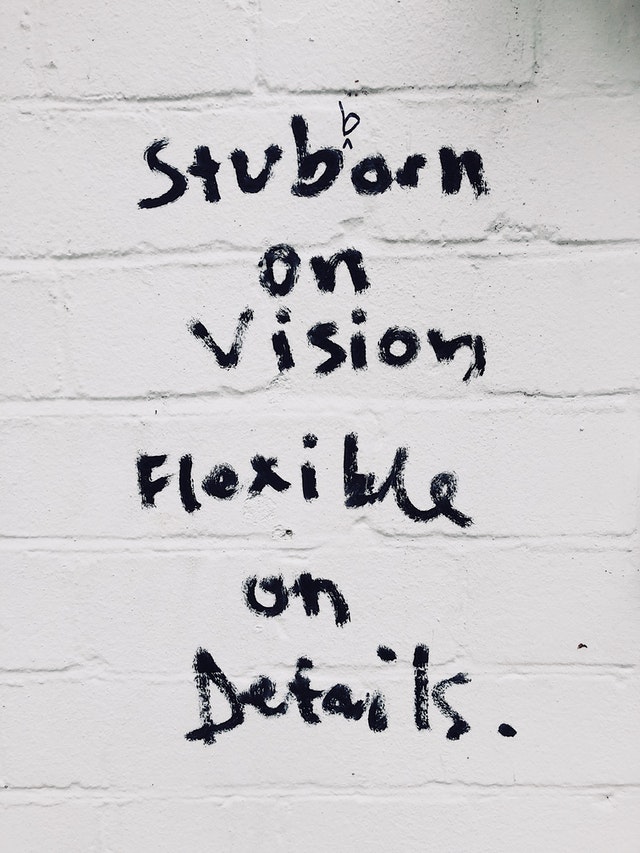Following on from our earlier article on soft skills for developers, we wanted to share more about one of these skills in particular: adaptability.
So, why is adaptability so important for developers who want to be successful in their career? And what are some practical ways developers can be more flexible and adaptable?
Why adaptability is an essential quality for developers
Technology and platforms change all the time. Very few developers who have been in the industry for more than a decade are using the same technology stack they started with. New platforms, languages, and tools are constantly released to provide new features, advancements, and better efficiency.
Developers need to continually adapt to changing technology or their skills won’t stay relevant to employers.
It’s not just the technology that changes. Customer needs can change, too. This can change overnight - for example, many developers have had to adapt their products to meet the needs of customers during COVID-19. Or it may happen very gradually, as more customers switch from accessing your content on their personal computer to smartphone or tablet. Either way, adaptability is essential to ensure you continue delivering value to customers as their priorities and usage habits change.
10 ways developers can be more adaptable
1. Don’t over-specialize

If in doubt, learn the fundamentals. That will let you jump into the new, shiny technologies faster and more easily.
It’s tricky to strike the balance between going wide and deep with your skill set. You need deep enough knowledge to become an expert on your core platforms without getting boxed into a single language, platform, or framework. Although mature frameworks are well accepted and stable, they don’t evolve as quickly which could hold back your product/features and skills. At the same time, newer frameworks may have more up-to-date capabilities and features, but they might fall short on backward compatibility and stability, and may quickly fall out of usage. It makes sense to broaden your skills across a mixture of well established and “upcoming” technology so you can adapt based on what your project requires and what’s most in demand.
Plus, for employers/managers, specialised employees are tricky to replace when they inevitably want to move on. That’s because they usually know things no one else does. As a result, you have to spend a lot of time training the next person, and there’s still a good chance you’ll run into problems down the track where the only person who has the answer has left.
2. Don’t be loyal for the sake of loyalty
Loyalty to an employer is admirable, but not at the cost of your career. If you find you’re not moving forward, learning new things, and trying new technologies each year, your growth may stagnate. If you stick around for too long, it could make you less hireable when it comes time to leave, because you’ll lack the experience and skills needed to succeed.
Instead, take matters into your own hands and try to introduce new technologies and approaches to the company you’re currently at. If this doesn’t work, it’s time to apply for a new role with a more innovative company that matches your personal goals.
3. Keep up with the news
Invest time at least once a week to stay on top of the latest developer news on blogs, podcasts, YouTube channels, tech influencer pages, and participate in community groups (including meetups, conferences, and events). That way, you’re better equipped to respond to any changes and trends that might impact your work. It’s also a good idea to pay some attention to the news in general, as events around the world will also have an impact on your colleagues, customers, and projects.
4. Keep on learning
Success is neither magical nor mysterious. Success is the natural consequence of consistently applying basic fundamentals.
Successful developers stay curious, continually learn new skills, and regularly add new tools to their toolkit. The good news is you probably won’t have to do another degree to be successful. But you will need to spend time reading about things that will help your technical skills stay relevant and help improve your leadership skills.
Continual learning is a prerequisite to success. For example:
- Bill Gates reads about 50 books a year
- Warren Buffet reads around 5-6 hours per day
- 1200 of the world’s wealthiest people self-educate by reading
When you level up your skills and knowledge regularly, you’ll be equipped to move into leadership roles and smoothly transition over to new technologies and platforms, so you can adapt to change.
5. Work in self-contained teams
When a team consists of people from multiple disciplines, it also fosters a better understanding of what those other disciplines do. This can help build empathy between people in different disciplines, which can improve team work and potentially speed up the release process.
Adaptability is important at the team level, too, so you can quickly respond to changes in requirements. One way to do this is to structure your teams so they’re self-contained or cross-functional. This means your team has all the knowledge and skills needed to deliver the final product and achieve their goals. Usually, you’ll have people who can code, test, analyze, deploy, and write the documentation. Self-contained teams have fewer external dependencies, which makes them more flexible and often more productive, too.
A good example of what this looks like is how Spotify’s teams are set up. The basic team unit is called a “squad”, and it’s designed to work like a startup with all the skills and tools needed to deliver a product or feature.
6. Work iteratively
Working in iterations or increments means timeboxing your development so that you release smaller changes more frequently. You might work in 2-week sprints, or deliver work in releases every 1-4 weeks. Working in iterations can help you be more adaptable because:
- You can collect and act on customer feedback after each release
- There’s room for your plans and ideas to evolve over time
In turn, this can help your team deliver a more successful product.
We talk more about how we use increments at Tiny in our previous article, Agile at Tiny: How we’ve adapted agile principles to work for us.
7. Be agile
97% of respondents to the 13th Annual State Of Agile Report released in 2019 reported that their organization practices agile development methods. Most software developers follow agile practices, which require adaptability. One of the items on the agile manifesto is “responding to change over following a plan.”
And the second agile principle is to “welcome changing requirements, even late in development. Agile processes harness change for the customer's competitive advantage.”
If you’re agile, you have to be ready to change and adapt, and many of the agile practices are designed to help you do that. If you’re not sure whether you should be agile, take a look at our article, Agile, waterfall, or hybrid: what’s right for your development team?
8. Cross-skill team members
Cross-skilling is great for teamwork and team building. If one person always takes care of something, then the rest of the team might not understand why or what they spend their time on. If more people know about it, it not only enables other people to step in when needed, it also builds understanding within the team of how everyone is supporting each other.
Cross-skilling means that you’re able to work in a range of roles, can comfortably do tasks outside of your regular responsibilities, and step into another team member’s role. Teams that are cross-skilled are stronger, more agile, and more ready to face challenges. This can maximize your team’s capacity to take on projects and adapt to different scenarios, like if:
- One of your team members is sick
- Someone takes a holiday
- Someone leaves, but you haven’t found the right replacement yet
- You’re exceptionally busy
- There’s a bottleneck
- Someone falls behind
9. Be open to scope change
Sometimes as you’re working on something, new information will come to light, someone will come up with a better idea, or maybe they’ll find extra budget to deliver a better product. Be ready to adapt to scope changes - which is a lot easier when you follow an agile development process with incremental changes.
10. Know what your boundaries are

This is another place where iteration might help. Hitting a boundary and having to rework or renegotiate a smaller piece of work will probably be easier than if you hit a wall on a bigger task.
Adaptability and flexibility are important - up to a certain point. But that doesn’t mean you should say yes to everything. Know what boundaries you won’t step over, what’s non-negotiable, and what’s more important to you. That way, you can respond to change in a way that’s sustainable for you.
Over to you
How have you adapted in your career as a software developer so far? What technology stacks or soft skills are you currently working on to help you be more successful both now and in the future? Let us know over @joinTiny 🗨️
